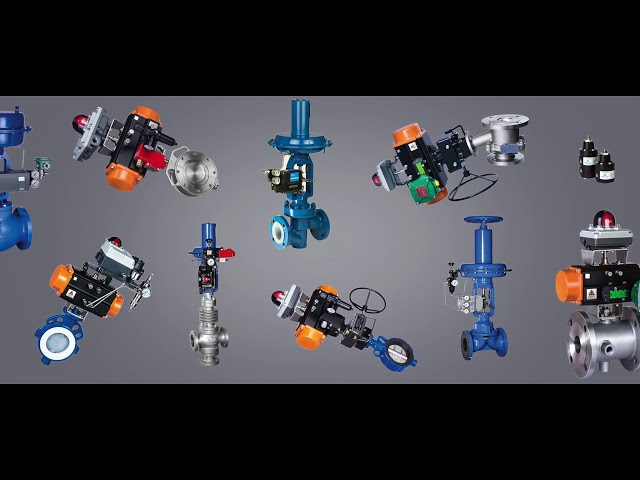
When it comes to maximizing system performance, efficiency, and overall vehicle operation, electronic valve control is essential in the world of hybrid and electric vehicles (HEVs and EVs).
Electronic valves sometimes referred to as electronically controlled valves, or ECVs are essential parts of the battery thermal management system (BTMS), engine cooling system, and air conditioning system that control the flow of fluids. Electronic valves help to improve fuel economy, lower pollutants, and increase user comfort by accurately controlling fluid flow.
Electronic Valve Control in Air Conditioning Systems:
It is very necessary to have air conditioning systems in hybrid and electric vehicles. During different weather conditions, this system is quite helpful in maintaining a comfortable cabin temperature. Electronic control valves are one of the most important instruments that regulate the refrigerant flow within the air conditioning system.
The flow regulator valve system ensures the right cooling performance and energy efficiency. These valves are designed to receive signals from the vehicle’s electronic control unit (ECU), so that it adjusts the refrigerant flow based on factors such as cabin temperature, compressor speed, and ambient conditions.
Electronic Valve Control in Battery Thermal Management Systems:
The battery pack is essential to the storage and provision of electrical energy in HEVs and EVs. However, temperature changes have a big impact on battery performance. The battery pack’s coolant flow is regulated by the BTMS using electronically controlled valves, which keep the batteries operating within their ideal temperature range. The safety, overall system efficiency, and battery life are all improved by this accurate temperature management.
Electronic Valve Control in Engine Cooling Systems:
The internal combustion engine (ICE) continues to be a major source of power in hybrid powertrains. The engine cooling system regulates the engine’s operating temperature within a predetermined range by the use of electronic flow regulator valves. By carefully controlling the coolant flow via the digital flow control valve, these valves maximize heat rejection and prolong engine life.
Benefits:
Electronic valve has different benefits in hybrid and electric vehicles. They are capable of improving the process efficacy of others in hybrid or electric vehicles.
It is necessary to explore these benefits properly:
Enhanced System Efficiency:
System efficiency increase with the help of these Liquid flow control. This helps to manage the fluids properly, minimize energy consumption, or improve the overall system permanence.
Improved Comfort and Performance:
The electronic flow control valve properly manages the temperature regulation in the air conditioning system or battery thermal management system. This maintains battery performance and improves comfort for users.
Reduced Emissions:
Reduced emissions and a more ecologically friendly car are the results of improved air conditioning and engine cooling.
Simplified installation and commissioning:
When compared to conventional valve systems, electronic digital flow control valves can be commissioned more rapidly, which is even helpful in minimizing complications during the installation process.
Adaptive Control Capabilities:
Electronic valve control systems have the capability of providing optimal performance and efficiency in a variety of scenarios by adapting to changing driving circumstances and environmental factors.
Precise Temperature Control:
By enabling precise and responsive control over refrigerant flow, EXVs guarantee that the air conditioning system and battery run within their ideal temperature ranges. This exact management extends the life of vital components, minimizes overheating, and improves battery performance.
Conclusion:
In hybrid and electric cars, electronic valve control has become an essential technology that allows for more accurate fluid flow management. It is even helpful in increasing system efficiency, increased comfort, and lower emissions. These are some of the major advantages of using a digital flow control valve. These electronic valves will become more crucial as the automotive sector embraces electrification in order to maximize these vehicles’ sustainability and performance.
Tech World Times (TWT), a global collective focusing on the latest tech news and trends in blockchain, Fintech, Development & Testing, AI and Startups. If you are looking for the guest post then contact at techworldtimes@gmail.com

